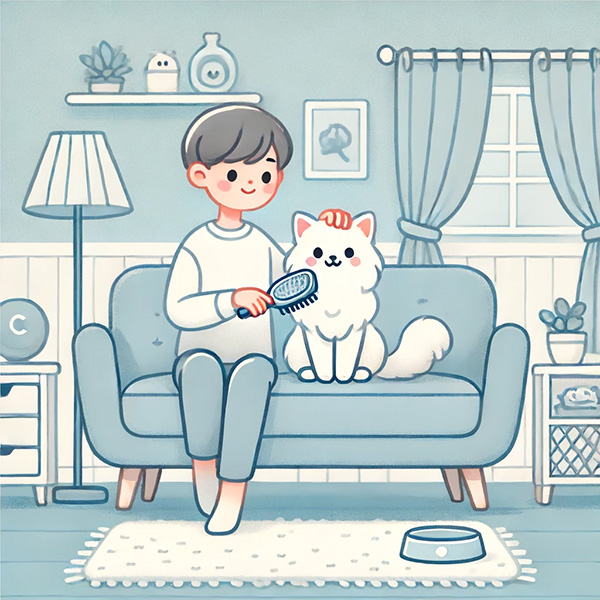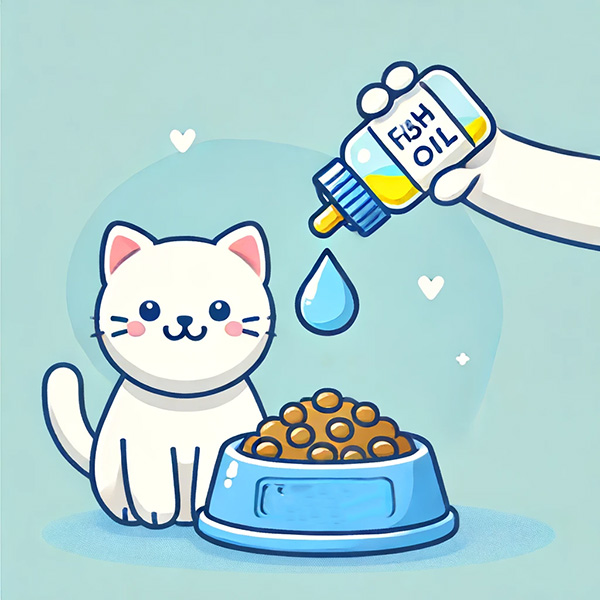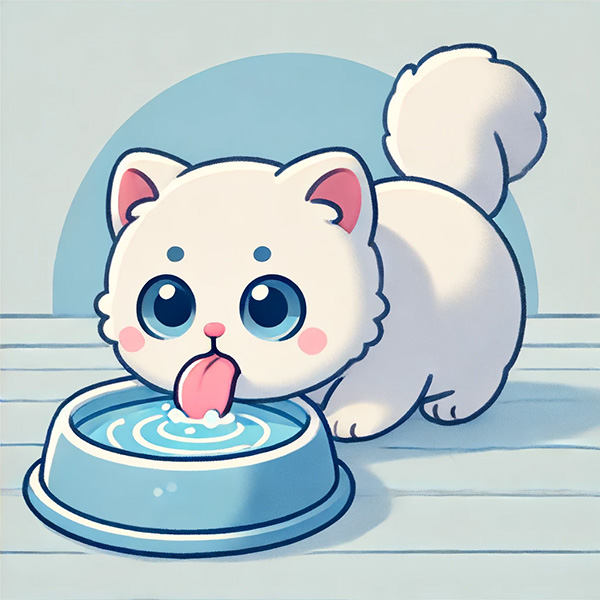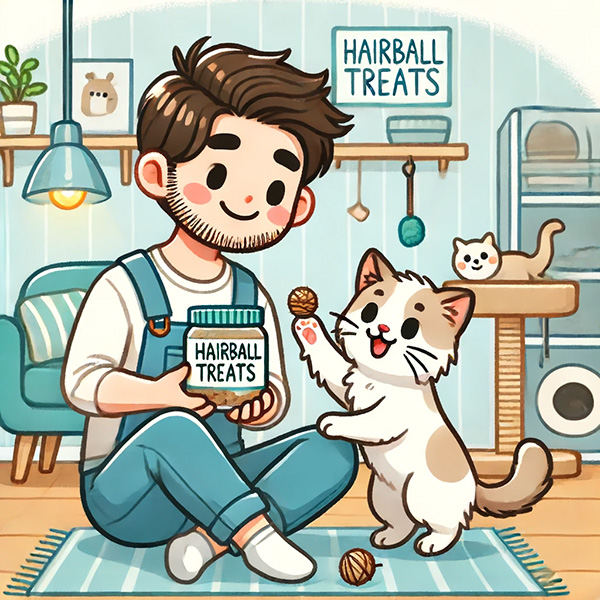Hairballs are a common issue for many cats and can cause significant discomfort and even health problems if not managed properly. Given their instinctive grooming habits, cats frequently swallow hair, which can form into balls in their digestive system. Knowing how to prevent and address hairballs is essential for safeguarding your cat's well-being and contentment.
In this article, we'll discuss practical solutions on how to prevent hairballs to aid your feline friend in managing them more comfortably. From dietary adjustments to grooming techniques, we will provide comprehensive insights to aid you in keeping your cat hairball-free and feeling their best. While occasional hairball shouldn't be too much trouble, pet owners should be monitored for any other symptoms and seek veterinarian advice when possible.
The 8 Best Cat Hairball Remedy Solutions
Regular Grooming

Regular grooming of the cat's coat is a key preventive measure against hairballs in cats. As a cat grooms herself, she swallows loose hair. Regularly grooming your cat can effectively decrease the volume of hair being ingested in your cat's stomach, helping to minimize the likelihood of hairballs. This aspect holds particular significance for long-haired cats, as they are more susceptible to experiencing hairball-related problems.
Using a suitable cat brush, like a slicker or a grooming glove, not only helps remove loose and dead hair but also enhances the bond between you and your pet. Establishing a routine grooming schedule can ensure your cat remains comfortable and effectively minimizes the formation of hairballs.
Dietary Fiber

Incorporating dietary fiber into your cat’s diet is an effective remedy for managing hairballs and maintaining a healthy digestive tract. Fiber aids in digestion and promotes the easy passage of ingested hair through the gastrointestinal tract, thereby decreasing the likelihood of hairball formation. Consider feeding your cat specialized hairball formula cat food with higher fiber content or adding a small amount of canned pumpkin to their meals. These dietary adjustments can significantly help prevent the discomfort and potential health issues associated with cat hairballs.
Lubricants and Gels
Lubricants and gels are commonly used to prevent and treat hairballs in cats. These products work by coating the swallowed hair, easing its passage through the digestive tract, and reducing the likelihood of hairball formation. Products like petroleum-based gels or natural oil supplements can be administered directly on the cat's paw or mixed with the cat's food.
It's important to use these products as directed and choose formulations specifically designed for cats to ensure safety and effectiveness. Regular use can help manage hairball issues, improving your cat’s overall digestive health and comfort.
Add Oils

Adding oils to your cat's diet is an effective way to help manage hairballs. Oils such as fish oil or olive oil can lubricate your cat's digestive tract, facilitating the passage of ingested hair and preventing hairball formation. Just a few drops mixed into your cat’s food can aid in this process.
It's important to introduce oils gradually and in small amounts to ensure they agree with your cat's system and to avoid digestive upset. Before incorporating any new supplement into your cat's diet, it's important to consult your veterinarian to confirm its suitability for their specific health requirements.
Increase Hydration

Increasing your cat's hydration is a crucial strategy for preventing hairballs. Hydration helps keep the cat's digestive system functioning smoothly, facilitating the passage of ingested hair. Encourage your cat to drink more by providing fresh water in multiple locations, using cat water fountains to attract their interest, or adding water to their wet food. This increase in hydration can help minimize the formation of hairballs and promote overall digestive health, making it easier for your cat to manage ingested fur.
Butter
Using a small amount of butter can serve as a home remedy for cat hairballs. The concept is that butter can help lubricate the gastrointestinal tract, potentially facilitating the cat's fur to pass through. A small dab of butter, given once or twice a week, can aid in this process.
Nevertheless, it's crucial to exercise moderation when considering butter, as it contains high levels of fat and is not a natural component of a cat's diet. Always seek guidance from your veterinarian before introducing any new elements into your cat's diet to ascertain its safety and efficacy for your individual pet.
Hairball Treats and Supplements

Hairball treats and dietary supplements can be a convenient and effective solution for managing your cat's hairball issues. These products are specially designed to mitigate hairball formation and support a healthy digestive system. They often contain fiber, which aids in the smooth passage of hair through the gastrointestinal tract, and lubricants like fish oil to help bind the hair and ease its movement. Offering these treats regularly, as directed, can help minimize hairball problems and maintain your cat’s overall health. Always opt for premium-quality products explicitly crafted for cats to guarantee their safety and efficacy.
Mild Laxatives
Mild laxatives can be a remedy for cats with frequent hairballs. These products help increase the movement of ingested fur through the digestive tract, easing the passage and reducing the risk of hairball formation. It's important to use laxatives formulated specifically for cats, as human products can be harmful to them. Before giving any laxative to your cat, consult your veterinarian to ensure it's suitable for their specific health requirements and to determine the correct dosage. This will help safely address hairball issues while maintaining your cat's overall digestive health.
